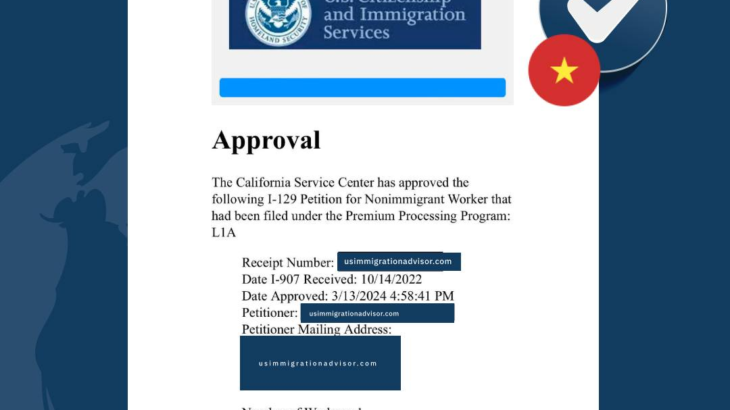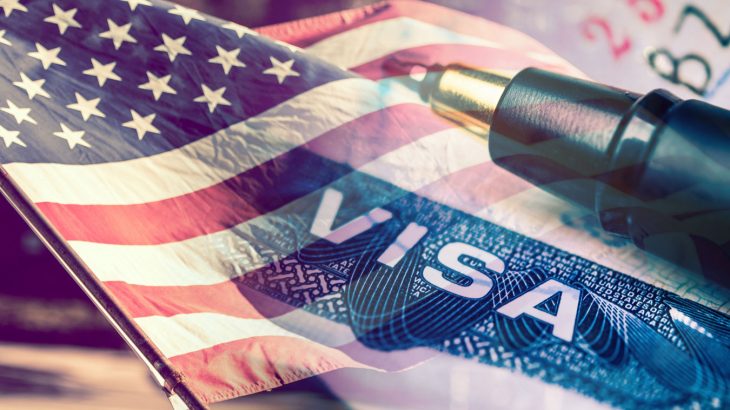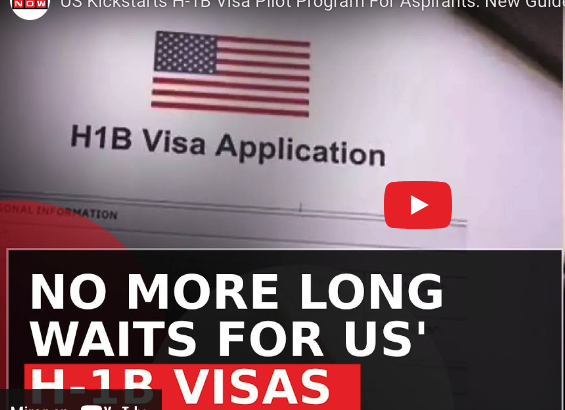E2 Employee Visa defined
An E2 Employee Visa is a visa classification that allows a national of an E2 treaty country to work for an E2 business. The business can be new or existing where the treaty investor of the same nationality has invested a substantial amount. If the treaty investor has been proven eligible, certain employees may also be eligible.
Treaty investors, either real or corporate, must possess the following requirements to qualify:
- Be a national of an E2 treaty country. Treaty countries are those that entered into a treaty of commerce and navigation with the U.S.
- Made a substantial investment in a genuine U.S. enterprise.
- Must show that they own or control at least 50% of the U.S. enterprise
- Must invest in an enterprise that’s more than marginal
Privileges that an E2 Employee Visa grants
The E2 Employee Visa allows the holder to work in the treaty investor’s business in either an executive or supervisory role or any other role that’s essential to the operations of the business, which means that they possess specialized skills needed by the E-2 company. The holder of an E2 employee visa must only work for the treaty investor business and not for any other U.S. employer without seeking further permission.
The holder can be accompanied by their spouse or unmarried children under the age of 21 in the U.S. Their spouse can also legally work in the U.S., while their children can attend school.
Moreover, the E2 Employee Visa holder can freely travel in and out of the U.S. with their dependent family members without restrictions, provided their visa remains valid.
Types of Employees under the E-Visas
Executives and/or Supervisors
For this type of employee, it is a must that the applicant possesses qualifying executive and supervisory experience. You should be able to demonstrate their experience, although it is not a requirement that you have previous employment with the principal treaty investor for a specific period.
You should also be in a senior position and manage the whole business or a key part of the business. Moreover, your role’s executive or supervisory nature must be the principal and primary function and not just merely incidental. If the role entails key supervisory responsibility for a key part of the business’s operations and only routinely involves substantive staff work, then you can apply for this visa type.
During the application process, you should submit documents such as a job description, resume, and other supporting documents.
Specialized or Essentially Skilled Workers
In this type, you should be able to demonstrate that you’re an essential employee possessing a specialized knowledge of the business which can be hardly found in the U.S. or that you’re necessary for the efficient operation of the treaty investor business. There are cases, however, that ordinarily skilled workers can qualify as essential employees for start-up or training purposes.
Benefits of an E2 Employee Visa
There may be reasons why an E2 Employee Visa may be a better fit for you than other nonimmigrant work visas. The E2 Visa can be extended or renewed indefinitely as long as the treaty country nationality meets the requirements. Moreover, there is no limit on the number of E2 visas issued per year. If you’re accompanied by your spouse, they can work in the U.S., and you’re not required to work abroad for a period of time before qualifying.
However, the E2 Visa is not a direct road towards a green card. As an E2 Visa holder, you must have a nonimmigrant intent and as such, you have the intent to depart once your visa expires.
If you think that the E2 Employee Visa is not the right one for you, you can also visit here for the other employment-based visas.
Requirements for an E2 Employee Visa
Before applying for an E2 Employee Visa, the treaty investor business must be first registered with the E-Visa Unit. After all the requirements are met by the business, as the E2 employee, you must also satisfy the following:
- You have the same nationality as the treaty investor or the treaty investor’s business
- You must work in an executive or supervisory position or possess essential skills to the operations of the business; and
- You intend to leave the U.S. once your visa expires.
Requirements for the E2 Treaty Investor
If you’re a treaty investor, you must satisfy certain requirements to be able to bring employees to the U.S. under an E2 Visa USA.
You have to be a national of an E2 Treaty Country
To qualify for an E2 Treaty Investor Visa, you have to be first national of a treaty country, which is a country that has a treaty of commerce and navigation or that has a qualifying international agreement with the U.S. or which has been deemed qualified by law.
You can also check through the U.S. Department of State website to check which countries are qualified for an E2 Visa.
However, for companies, the process can be a little more complex. To determine its nationality, you have to look into the ownership structure. At least 50% of the company must be owned by treaty country nationals. These owners must either maintain a nonimmigrant treaty investor status or if they’re not in the U.S., they are seeking admission to the country as nonimmigrant treaty investors.
You have to show that you intend to or will direct and develop the enterprise.
You must show that you’ll personally develop and direct the enterprise in the U.S. if the employee plans on applying for the E2 Employee Visa as an individual employee.
In the case of a company, the parent company itself and not the individual owners must show that it will develop and direct the enterprise.
You have to show that you made a substantial investment in the U.S.
You must show that you have invested or are in the process of investing a substantial amount of capital in a real and operating commercial enterprise. Aside from making sure that the funds came from legal sources, the investment must also be “at risk” and must be more than a marginal investment. Substantial may depend on the E2 business, but the investment must be sufficient to ensure the treaty investor’s financial commitment to the success of the enterprise. Meanwhile, to not be marginal means that it’s intended to provide more than a living solely for the investor and his family.
Since this is a quick rundown, you may also check the full comprehensive requirements for E2 Visa.
The application process for an E2 Employee Visa
The requirements for filing for an E2 Employee Visa are the same as that of an E2 Treaty Investor Visa, albeit with different supporting documents.
Before being granted an E2 Employee Visa, the treaty investor business must be first successfully registered with the E-Visa Unit through Form DS-160 and by submitting comprehensive supporting documents. Meanwhile, the E2 Employee Visa applicant must submit a Form DS-156E.
If you’re applying for employment in a previously qualified E2 business, then you’ll need to submit both Form DS-160 and Form DS-156E.
You are required to attend an interview and submit all the relevant supporting documents which include:
- A copy of the confirmation page of Form DS-160
- A copy of the appointment confirmation page, if necessary
- A filled-up Form DS-156E
- A copy of your passport valid for at least 6 months beyond your stay in the U.S. and with at least one blank page
- A coloured passport taken within the last 6 months, unless your photo was uploaded at the same time as the Form DS-160.
- Evidence of previously issued U.S. Visas, if any
- A letter that details your job description, including the description of the treaty investor’s business, your role in the business, your qualifications for the role, and your salary plus benefits.
- An organizational chart which defines the executive, managerial or essential role in the business
- An updated resume
- A copy of certificates, diplomas or professional qualifications
- A copy of the approval letter of the registered E2 business
- A signed and dated intent to depart once your visa expires
- If your name has been changed, a copy of the name change by deed poll
- A police certificate or ACROW if you have a previous history of being arrested, cautioned or convicted
- A letter from a physician which discusses your health, if you have a medical condition which would affect your eligibility for the visa
- Any document that can be relevant to your application
Take note that this list is not exhaustive and there may be additional documents that you might need to bring depending on your circumstances.
Meanwhile, if you’re planning to change to an E2 status in the U.S., you must file a Form I-129 along with an E supplement.
Davies & Associates has the right immigration lawyer for your E2 Visa application which can help you determine the right documents you may need depending on your circumstance and help increase your chances of getting approved.
Requirements to petition for E2 Employees
To be eligible to petition for E2 employees, the prospective employer must fulfil the following requirements:
- Be a citizen of a treaty country, which is a country that has a treaty of commerce and navigation that has a qualifying international agreement with the U.S. or that has been deemed qualified by law.
- If it’s a company or organization, have at least 50% of it owned by citizens of a treaty country. These owners must maintain a nonimmigrant treaty investor status if residing in the U.S. or if not residing in the U.S., who would be classifiable as treaty investors.
If you’re the E2 employee that will be hired, you must have the same nationality as your employer. Once you’ve fulfilled that requirement, there are two requirements that your employer must possess depending if they’re located in the U.S. or abroad.
E2 Employer located in the U.S.
If your employer is located in the U.S., they must have an E2 Treaty Investor visa. They can’t be in the U.S. under any visa classification other than E2 to be eligible to hire employees under the E2 Employee Visa.
If the U.S.-based employer is a company or organization, at least 50% of it must be owned by citizens of a single treaty country and maintain an E2 treaty investor status in the U.S. The company or organization must only have one nationality as an E2 employer unless it’s controlled equally by nationals of 2 treaty countries maintaining an E2 treaty investor status in the U.S.
E2 Employer located abroad
If the employer is an individual, they must be classifiable as an E2 treaty investor.
Meanwhile, if it’s a company or organization, at least 50% of it must be owned by citizens of a single treaty country and maintain an E2 treaty investor status in the U.S. The company or organization must only have one nationality as an E2 employer unless it’s controlled equally by nationals of 2 treaty countries maintaining an E2 treaty investor status in the U.S.
Take note that persons abroad who are U.S. citizens or lawful permanent residents may not be counted even if they also have the nationality of an E2 treaty country.
Job duty requirements for an E2 Employee
Job creation and hiring employees is one of the important parts of the E2 Visa program. The treaty investor must show that their investment has the potential to generate full-time jobs in the U.S. Although it’s not required to be immediate, the business must contribute eventually to the U.S. labor market.
If the treaty investor is planning to hire employees from their treaty country, there are certain requirements for job roles. If you’re planning to obtain an E2 Employee Visa, you must either be working in an executive or supervisory position or possess essential skills for the successful operation of the U.S. business.
Employees with Executive or Supervisory Positions
Various factors need to be taken into account in determining if you will be pursuing an executive or supervisory role in the E2 enterprise. These include the title, the duties, the salary, its position in the organizational chart, the degree of control and responsibility the applicant will have on the overall operations, the people whom you will supervise, and whether you possess any relevant experience.
Moreover, the executive or supervisory aspect of the role must be the principal and primary function and not merely incidental. This means that if your position primarily involves routine staff work and secondarily entails supervision of other employees, then you may not be classified as an executive or supervisory employee for the E2 Employee Visa.
Additionally, if you’re occupying a supervisory role, the business must be sufficiently large enough for you to supervise a key part of it. It’s not acceptable that you would only be supervising lower-level employees in the same business.
Employees with Essential Skills to the Operations
Different factors need to be taken into account when determining if you have the skills essential to the successful operation of the U.S. business. These include your experience, training, the uniqueness of your skills, the availability of U.S. workers with the same skills, the salary, your expertise, and the function of your future job in the U.S. business.
There are cases where ordinarily skilled workers may also qualify as essential employees when such employees are needed for startup or training purposes. Take note that under this type, you are essentially needed for your specialized knowledge and familiarity with overseas operations.
E2 Employee Visa Duration
The E2 Employee Visa is usually based on a reciprocity schedule with the treaty country. However, it should be noted that the applicant has the burden of establishing the duration of essentiality.
E2 Employee Visa Extension
The E2 Employee Visa can be extended indefinitely provided that the E2 enterprise continues to meet the requirements and that the employee shows their intent to return once their visa expires.
If you’re planning to extend your visa, you must apply for the extension before the expiry of your current grant of leave to maintain your E2 status.
Take note, however, that this visa classification doesn’t give you a direct path to a lawful permanent resident status. You would need to look into other visa options to transition to become a permanent resident.
E2 Employee Visa Costs
You must pay a non-refundable fee of $205 for Form DS-160 to apply for an E2 Employee Visa. This means that for every denied application, you must pay the required application fees to apply again.
Meanwhile, if you’re a treaty investor, you may also check out the complete E-2 Visa cost.
E2 Employee Visa Dependents
As an E2 Employee Visa holder, your spouse or unmarried children under the age of 21 can accompany you to the U.S. under your visa. They may be admitted for the same period as yours and may also be eligible for extensions. Your spouse may apply for work in the U.S. without the need for an Employment Authorization Document (EAD), while your children may attend school.
FAQs
Is there an educational requirement such as a bachelor’s degree before I can be eligible for an E2 Employee Visa?
No, unlike other work visas, the E2 Employee Visa doesn’t require that you possess the relevant bachelor’s or master’s degree. While this could be helpful, it’s not one of the requirements for the visa category. As long as you possess the requirements, then you can apply for an E2 Employee Visa.
How long do I have to wait once I apply for an E2 Visa?
The processing times can vary depending on the type of your application and where you apply. If the business is already registered as an E2 business, then the process can be faster and easier.
In terms of location, the processing times can also vary depending on the U.S. Embassy or Consulate. Some consular officers complete the applications within a week while some may take months. If you’re applying for a change of status while in the U.S., the USCIS has a premium processing service where your application can be expedited in 15 days rather than weeks or months.
Can the E2 Visa grant me a green card?
The E2 Visa is classified as a nonimmigrant visa, which means that although it can be renewed indefinitely, it’s still a temporary visa. If you’re an E2 Visa holder, you would need to look for other visa classifications to be able to apply for a green card.
What is the minimum investment required for an E2 Visa?
There is no given amount for it to be considered as a sufficient investment under the E2 Visa. Substantial may depend on the E2 business, but the investment must be sufficient to ensure the treaty investor’s financial commitment to the success of the enterprise.
Does the employee need to invest money in the U.S. enterprise?
No, the investment requirement is necessary only for the treaty investor applying for an E2 visa.






































